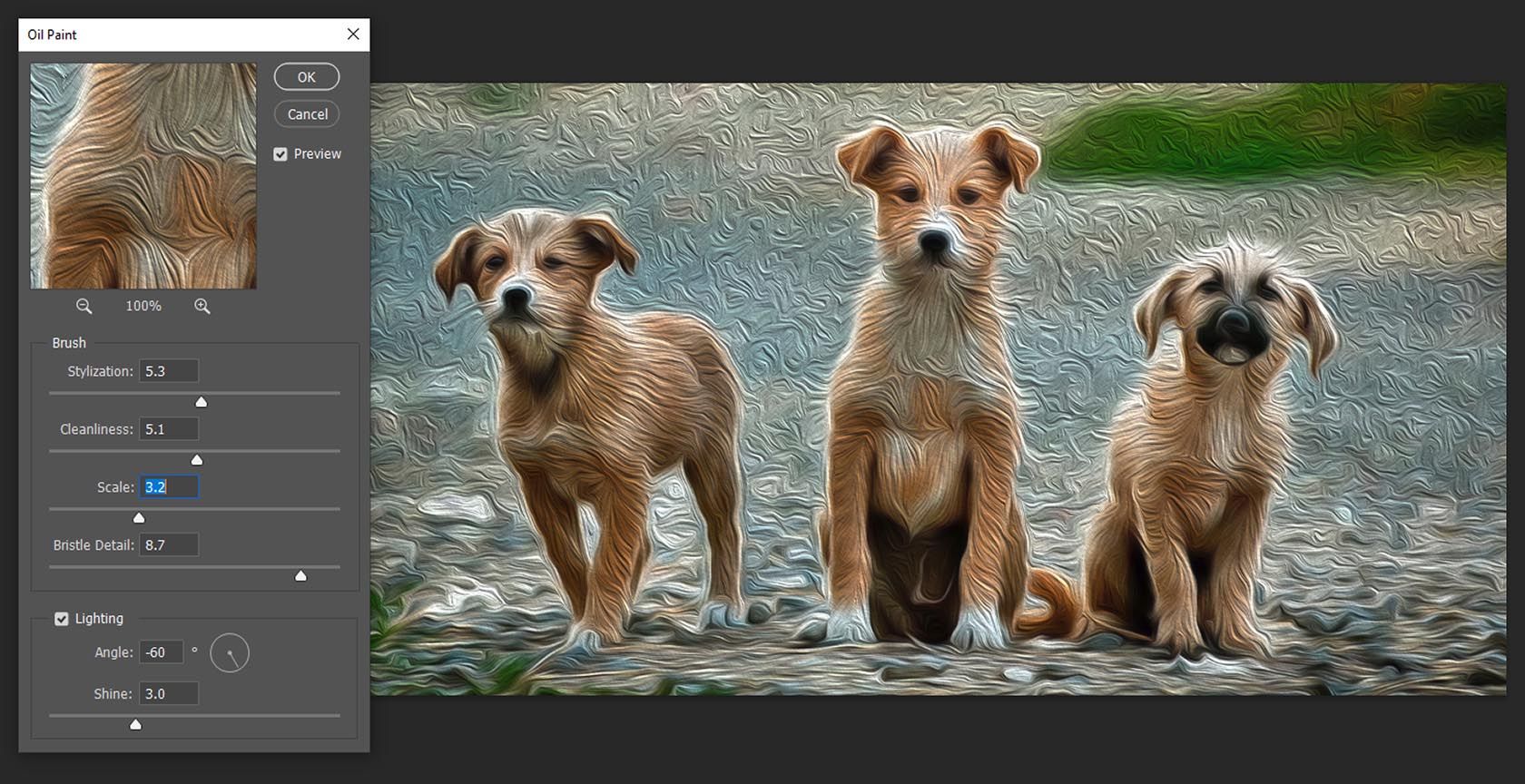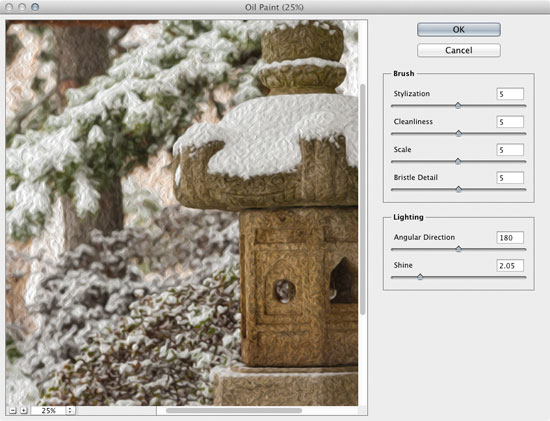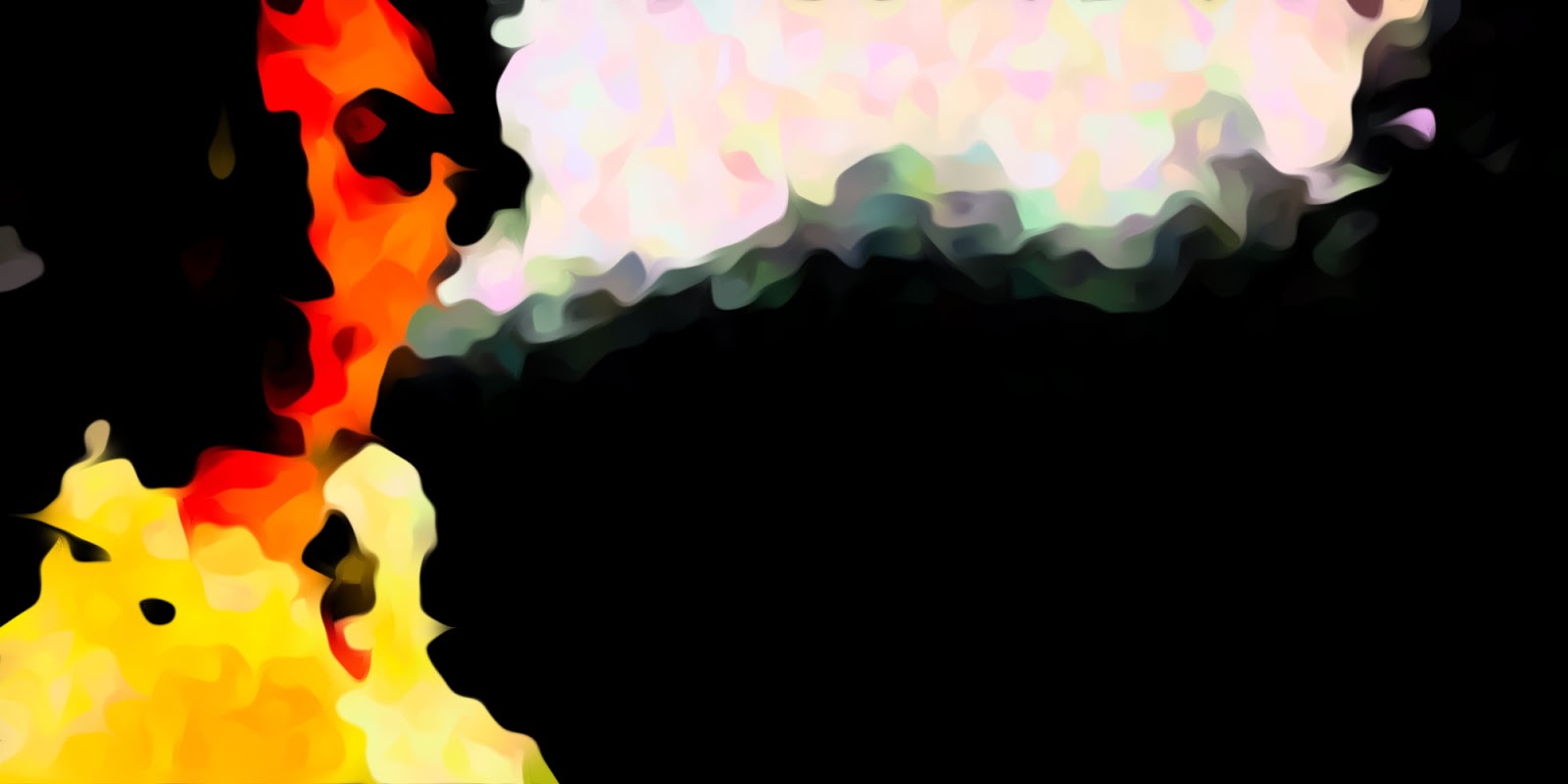

To get more information about the framework, you may read the dedicated article on The Code Project or visit the project's home page, where you can get all the latest information about it, participate in a discussion group or submit issues or requests for enhancements. The Image Processing Lab application is based on the AForge.NET framework, which provides all the filters and image processing routines available in the application. IFilter filter4 = new TexturedFilter( new CloudsTexture( ),īitmap newImage4 = filter4.Apply( image ) IFilter filter3 = new Texturer( new TextileTexture( ) ) īitmap newImage3 = filter3.Apply( image ) IFilter filter2 = new Texturer( new WoodTexture( ) ) īitmap newImage2 = filter2.Apply( image ) IFilter filter1 = new Texturer( texture ) īitmap newImage1 = filter1.Apply( image )

IMPORT OIL PAINT FILTER FOR PHOTOSHOP GENERATOR
ITextureGenerator generator = new MarbleTexture( ) įloat texture = generator.Generate( image.Width, image.Height ) The third, TexturedMerge, allows merging of two images using the texture as a mask.Ĭopy Code // 1 - Marble effect // create texture The second, TexturedFilter, allows application of any other filter to an image using the texture as a mask. The fist one, Texturer, is for texturing images. For applying textures to images, there are three filters. All these texture generators implement the ITextureGenerator interface. Texture generators are placed into the Textures namespace of the library, which contains generators for such effects as clouds, wood, marble, labyrinth and textile. The first step is to generate effect textures and the second step is to apply the textures to the particular image. Application of such effects to images can be done in two steps. Perlin noise has many applications and one of the most interesting of them is the creation of different effects, like marble, wood, clouds, etc. It is easy to perform a Fourier transformation, which is useful for image analysis and filtering with the library:įilter.InCb = new DoubleRange( -0. create filter iterator for 10 iterationsĪ filter = add 8 thinning filters with different structuring elementsįilterSequence.Add( new ( To guarantee that your image is in one of the formats, you can use the following code:Ī filterSequence = In the case of grayscale images, we use PixelFormat.Format8bppIndexed with color palette of 256 entries. Most filters are designed to work with 24bpp RGB images or with grayscale images. The program allows you to copy to or paste from clipboard, save and print images. All filters are applied only to the portion of the image currently viewed to speed up preview.Ī PhotoShop-like histogram allows you to get information about mean, standard deviation, median, minimum and maximum values. You can scroll an image using the mouse in the preview area. Colorized grid makes it very convenient to work with custom convolution filters.Ī preview window allows you to view the results of changing filter parameters on the fly. You can create (save and load) your own convolution filters or filters based on standard mathematical morphology operators. Fourier transformation (lowpass and hipass filters).Texture filters (texturer, textured filtering, textured merging).Texture generators based on Perlin noise.Median filter, Adaptive smoothing, Conservative smoothing.Levels linear filter, gamma correction.Pixellate, Simple skeletonization, Jitter, Shrink, Oil painting.Blob counter, Connected components labeling.Edge detectors (homogeneity, difference, sobel, canny).2 Source filters (merge, intersect, add, subtract, difference, move towards, morph).



 0 kommentar(er)
0 kommentar(er)
